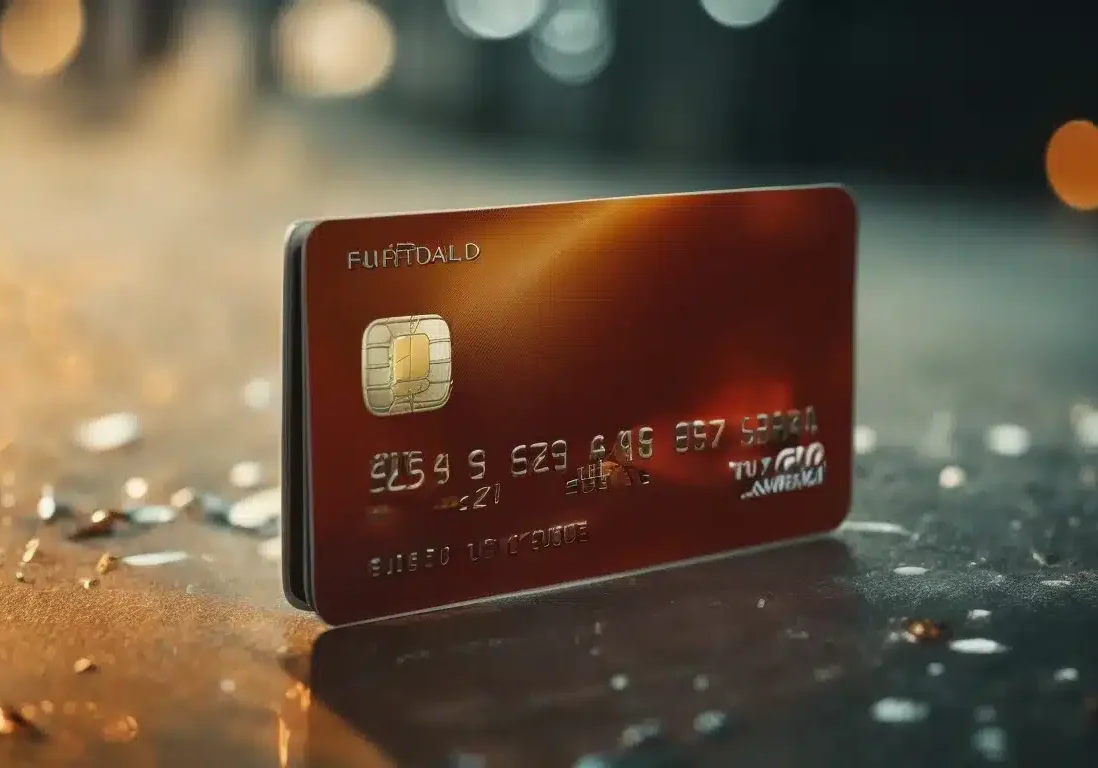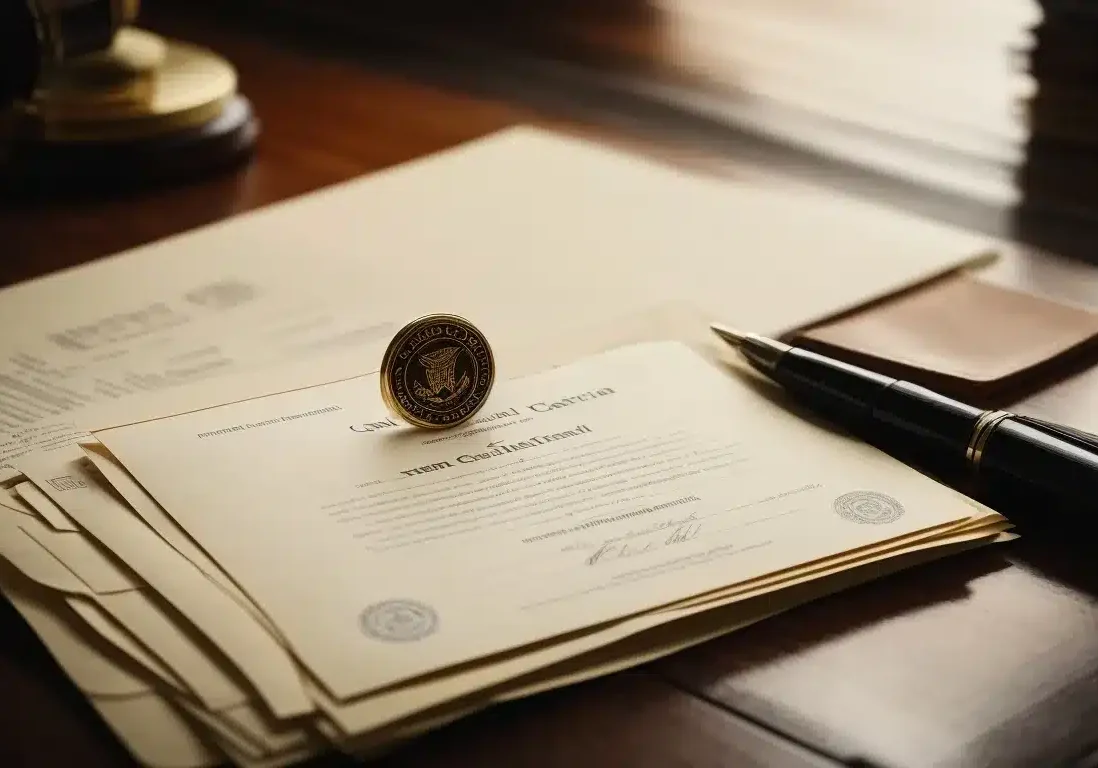Introduction:
This article will outline some hidden benefits of using credit cards, particularly the built-in purchase protection they provide.
- Section 75 shares the responsibility between credit card companies and retailers, safeguarding your purchases.
- The protection for partial payments and how even a deposit can be covered.
- Debit card alternatives and their role in securing your transactions.
- How credit cards work seamlessly with PayPal, ensuring protection.
- Insights into the chargeback scheme and seeking resolution through the Financial Ombudsman.
This article explains how credit cards offer a safety net for purchases.

When choosing a payment method, its protection might not be the first thing on your mind. However, using a credit card for purchases comes with an added layer of security that cash or cheques can't match.
In this article, we will delve into the valuable protection that credit card transactions provide, giving you peace of mind in the face of potential issues.
Understanding Section 75: Your Safety Net
Each time you purchase with your credit card, you enter into a shared responsibility arrangement with the retailer. If any problems or disputes arise, you have the right to seek assistance from your credit card company, even before attempting to resolve the issue with the retailer. This protective feature, known as Section 75, is invaluable when dealing with situations where the retailer has gone out of business or remains unresponsive to your attempts at resolution.
This article is your comprehensive guide to grasping the security and reassurance that Section 75 brings to the table.

Partial Payments and the Shield They Offer
Certain conditions apply to both the credit card company and the retailer or trader when assessing liability. To qualify for Section 75 coverage under the Consumer Credit Act, the item or service you've purchased must fall within the price range of £100 to £30,000.
What's important to note is that you don't have to cover the entire purchase amount with your credit card to avail of its protection. Even if you've made only a partial payment, such as a deposit, your credit card still acts as a guardian. What truly matters is the total value of the goods or services you've acquired, not the specific amount charged to your card. To illustrate, let's say you paid a £500 deposit for a new car with your credit card and settled the remaining £10,000 via cheque. If the car dealership goes under, leaving you without your vehicle, you'd still be covered for the entire £10,500.
Contact ClaimsRefund.com today and see if your are due compensation
It's crucial to note that your rights when dealing with your credit card company mirror those you have when dealing with the retailer or trader. Therefore, if you need to file a claim for repair, you should approach your credit card provider for assistance. However, a refund request would not be simultaneous if you're already pursuing a repair or replacement.
The Debit Card Perspective
It's essential to recognise that Section 75 protection does not extend to debit or charge cards. However, an alternative avenue to explore for potential reimbursement is the chargeback scheme. Although not legally mandated, this voluntary program operated by Visa and MasterCard covers Maestro, Visa, and Visa Electron debit cards. The Financial Ombudsman Service considers Chargeback to be a commendable banking practice.
If you opt for the chargeback scheme, remember to initiate the process within 120 days of your purchase. Contact your bank for detailed guidance on applying for this scheme.
Partial Payments and the Shield They Offer
Certain conditions apply to both the credit card company and the retailer or trader when assessing liability. To qualify for Section 75 coverage under the Consumer Credit Act, the item or service you've purchased must fall within the price range of £100 to £30,000.
What's important to note is that you don't have to cover the entire purchase amount with your credit card to avail of its protection. Even if you've made only a partial payment, such as a deposit, your credit card still acts as a guardian. What truly matters is the total value of the goods or services you've acquired, not the specific amount charged to your card. To illustrate, let's say you paid a £500 deposit for a new car with your credit card and settled the remaining £10,000 via cheque. If the car dealership goes under, leaving you without your vehicle, you'd still be covered for the entire £10,500.
It's crucial to note that your rights when dealing with your credit card company mirror those you have when dealing with the retailer or trader. Therefore, if you need to file a claim for repair, you should approach your credit card provider for assistance. However, a refund request would not be simultaneous if you're already pursuing a repair or replacement.
The Debit Card Perspective
It's essential to recognise that Section 75 protection does not extend to debit or charge cards. However, an alternative avenue to explore for potential reimbursement is the chargeback scheme. Although not legally mandated, this voluntary program operated by Visa and MasterCard covers Maestro, Visa, and Visa Electron debit cards. The Financial Ombudsman Service considers Chargeback to be a commendable banking practice.
If you opt for the chargeback scheme, remember to initiate the process within 120 days of your purchase. Contact your bank for detailed guidance on applying for this scheme.
Partial Payments and the Shield They Offer
Certain conditions apply to both the credit card company and the retailer or trader when assessing liability. To qualify for Section 75 coverage under the Consumer Credit Act, the item or service you've purchased must fall within the price range of £100 to £30,000.
What's important to note is that you don't have to cover the entire purchase amount with your credit card to avail of its protection. Even if you've made only a partial payment, such as a deposit, your credit card still acts as a guardian. What truly matters is the total value of the goods or services you've acquired, not the specific amount charged to your card. To illustrate, let's say you paid a £500 deposit for a new car with your credit card and settled the remaining £10,000 via cheque. If the car dealership goes under, leaving you without your vehicle, you'd still be covered for the entire £10,500.
Contact ClaimsRefund.com today and see if your are due compensation
It's crucial to note that your rights when dealing with your credit card company mirror those you have when dealing with the retailer or trader. Therefore, if you need to file a claim for repair, you should approach your credit card provider for assistance. However, a refund request would not be simultaneous if you're already pursuing a repair or replacement.
The Debit Card Perspective
It's essential to recognise that Section 75 protection does not extend to debit or charge cards. However, an alternative avenue to explore for potential reimbursement is the chargeback scheme. Although not legally mandated, this voluntary program operated by Visa and MasterCard covers Maestro, Visa, and Visa Electron debit cards. The Financial Ombudsman Service considers Chargeback to be a commendable banking practice.
If you opt for the chargeback scheme, remember to initiate the process within 120 days of your purchase. Contact your bank for detailed guidance on applying for this scheme.
Credit Cards and PayPal Transactions
Credit card transactions sometimes involve two separate entities, commonly occurring when using PayPal for payments. The entity processing your payment may differ from the one delivering the goods or services. While this may initially seem complex, there's good news: if you use your credit card through PayPal, with funds directly reaching the seller, you can still leverage Section 75 protection. If the company you're purchasing from has a 'Commercial Entity Agreement' with PayPal, you can file a claim for any misrepresentation or contract breaches.
Moreover, PayPal offers its buyer protection scheme, aptly named PayPal Buyer Protection. This additional safeguard can be valuable in resolving issues with your purchases, ensuring your online shopping experience remains secure.
Items Under £100 – Leveraging Chargeback
For purchases under £100, you may be eligible for chargeback protection. While not a legally mandated safeguard like Section 75, Chargeback falls under a set of guidelines known as the Scheme Rules, which participating banks adhere to. Chargeback applies to all debit cards, with some variances depending on the Visa, Maestro, and American Express networks.
Seeking Resolution: The Financial Ombudsman
There is no specific timeframe for resolving chargeback or Section 75 claims with your card provider. However, if you are dissatisfied with the outcome or the prolonged duration, you can escalate the matter by filing a complaint with your provider. They will then have an eight-week window to address your concerns.
If your credit card company denies your claim and refuses payment, they are legally required to provide you with a “Final Response Letter”" This letter enables you to escalate your dispute to the Financial Ombudsman Service (FOS). If more than eight weeks have passed since you submitted your claim with your credit card provider, you can directly approach FOS. FOS will contact the provider and demand a Final Response Letter be issued.
Additionally, you can approach FOS before the eight-week mark if your provider consents. FOS is a free service you can use when you believe you've been treated unfairly or unreasonably and your creditor will not pay out. This covers instances where a company fails to uphold industry standards, regulatory guidelines, or legal obligations.
Although less formal than a court proceeding, FOS can compel businesses to provide compensation if they find it in their favour, ensuring a fair and equitable resolution to your dispute.

Conclusion
In conclusion, we've explored the hidden benefits of credit cards and their built-in purchase protection. We discussed how Section 75 shares responsibility between credit card companies and retailers, offering valuable safeguards for consumers. You've learned that even partial payments are covered, and we've explored debit card alternatives and the use of credit cards in PayPal transactions.
Additionally, we explained the chargeback scheme for items under £100 and provided insights on seeking resolution through the Financial Ombudsman Service. Armed with this knowledge, you can confidently make informed decisions and enjoy added security when using credit cards for your purchases.
Are you due a Refund or Compensation?
You may have been subject to unfair practices
You may be due compensation

Are you due a Refund or Compensation?
You may have been subject to unfair practices
You may be due compensation

Are you due a Refund or Compensation?
You may have been subject to unfair practices
You may be due compensation
Are you due a Refund or Compensation?
You may have been subject to unfair practices
You may be due compensation
